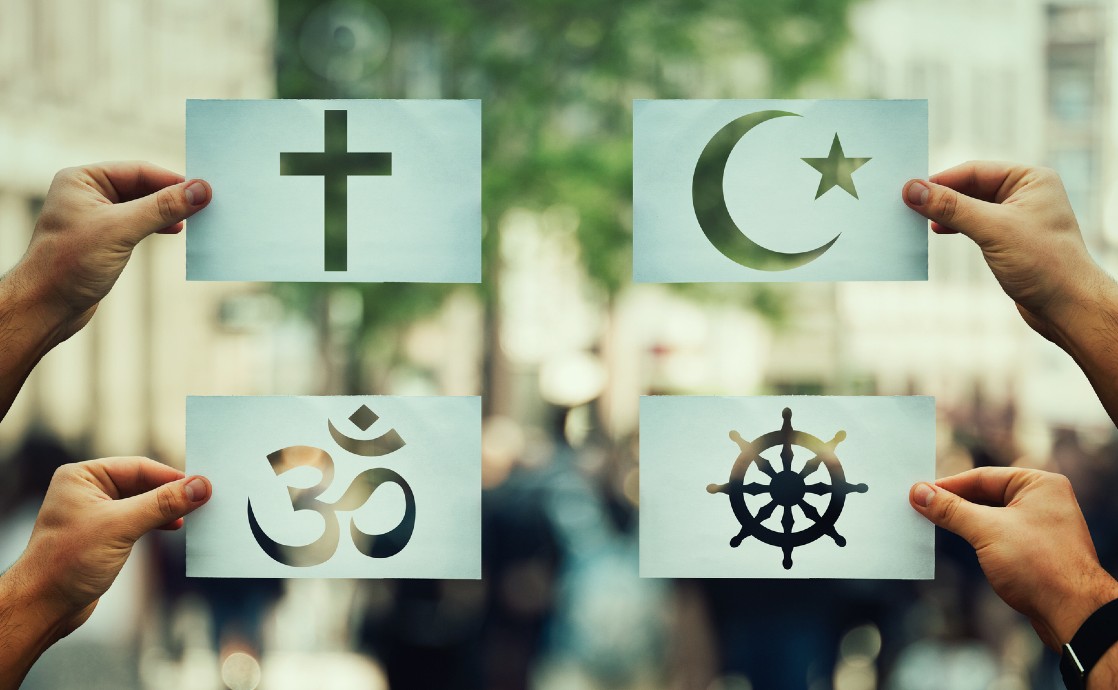In the intricate tapestry of human existence, each thread represents a distinct belief system, weaving together a multifaceted narrative of spirituality and moral integrity. Yet, amidst this colorful panorama, a disturbing shadow persistently looms—religious prejudice. This malignancy affects not only interpersonal relations but also undermines the very essence of community and global harmony. Within the paradigm of Bahá’í teachings, a resolute call emerges: to eradicate religious prejudice, fostering an environment where the sanctity of diverse beliefs is revered and celebrated. This discourse elucidates the fundamental tenets necessary to dismantle the barriers erected by intolerance, creating pathways toward understanding, unity, and universal love.
Firstly, the realization of the oneness of humanity is paramount. This principle serves as the bedrock of Bahá’í philosophy, positing that all people are part of a single, interconnected family. Metaphorically, consider humanity as a grand symphony, with each religious doctrine contributing a unique melody. When the violins of one sect clash with the flutes of another, the resultant cacophony undermines the potential for harmony. Thus, recognizing our shared origin, irrespective of creed, establishes a nurturing environment in which empathy flourishes and misunderstandings dissolve.
This leads us to the second guiding principle: the promotion of dialogue and understanding. In a world steeped in ideological divergence, open communication acts as a salubrious antidote to prejudice. Encouraging candid discussions on beliefs, traditions, and values provides fertile ground for insights and revelations, nurturing an ethos of respect and consideration. Engaging in discourse requires a willingness to listen—an art that many have forgotten in the din of modernity. By elevating conversations based on mutual respect, individuals can transcend superficial judgments, allowing for the appreciation of the diverse textures within the human experience.
The cultivation of an enlightened mindset presents the next crucial tenet. Education serves as a powerful force capable of dismantling prejudice. An educated populace is better equipped to discern facts from fallacies, fostering critical thinking that challenges dogmatic beliefs and stereotypes. As Bahá’í teachings advocate, “The best way of uniting the peoples of the world is by educating the children.” Education must not only encompass academic knowledge but also impart the values of compassion, tolerance, and respect for diversity. Such a holistic approach can catalyze a transformation in societal norms, instilling a collective identity that cherishes pluralism.
Furthermore, the role of spiritual transformation cannot be overstated. Religious prejudice is often rooted in fear—fear of the unknown, fear of losing one’s identity, fear of differing perspectives. In the paradigm of Bahá’í teachings, personal spiritual growth enables individuals to transcend these fears. Engaging in spiritual practices, whether through prayer, service, or meditation, allows individuals to connect to something greater than themselves. This connection fosters an inner peace that radiates outward, influencing interactions with others. Spirituality thus becomes a transformative bridge, connecting disparate beliefs into a cohesive understanding that celebrates the diversity of creation.
As we endeavor to bring down the walls of prejudice, the role of service to humanity emerges as another salient tenet. Understanding that education, dialogue, and spiritual growth are intrinsically linked to service fosters a tangible expression of love for others. The Bahá’í community is deeply rooted in service—whether it be through social initiatives, humanitarian efforts, or local capacity-building. Acts of service cultivate a sense of shared purpose, transcending religious affiliations and allowing individuals to coalesce around common goals, ultimately fostering an inclusive atmosphere that diminishes hostility.
In this pursuit, the necessity of recognizing and addressing systemic inequalities becomes evident. Prejudice often flourishes in environments where disparities manifest unchecked. The social justice teachings of the Bahá’í Faith emphasize the imperative to work collectively to eliminate poverty, discrimination, and disenfranchisement. Advocating for equitable opportunities for all dismantles the structures that foster hatred and divisiveness. The metaphor of a garden comes to mind; when nurtured with equity and justice, blossoms of understanding and companionship burgeon forth, bearing fruit for future generations.
Moreover, personal accountability plays a pivotal role in the quest to eradicate religious prejudice. Individuals must examine their belief systems and social interactions, questioning the biases that may obstruct their ability to embrace others. This introspection, coupled with a commitment to change, is transformative. Adopting a stance of responsibility in one’s actions forms the cornerstone of building a society grounded in respect and love. Each act of kindness, each moment of understanding, serves as a counterbalance to adversity, gradually tilting the scales towards acceptance.
Lastly, the promotion of universal peace is a quintessential objective in this quest. The interconnection between peace and the cessation of religious prejudice cannot be understated. Bahá’í teachings stress that true peace is founded on justice and equity—a paradigm that integrates the beliefs of all into a holistic worldview. By striving toward a collective vision of peace, humanity can aspire to create a flourishing world where diversity is not merely tolerated but celebrated as a testament to the beauty of creation.
In summation, the eradication of religious prejudice rests upon the pillars of understanding, dialogue, education, spiritual growth, service, personal accountability, and the pursuit of universal peace. By weaving these elements into the fabric of our interactions, we illuminate the path toward unity, nurturing an environment where love triumphs over hatred and understanding repels ignorance. It is through these collective efforts that the tendrils of religious prejudice will be dismantled, enabling humanity to flourish in its boundless diversity.
